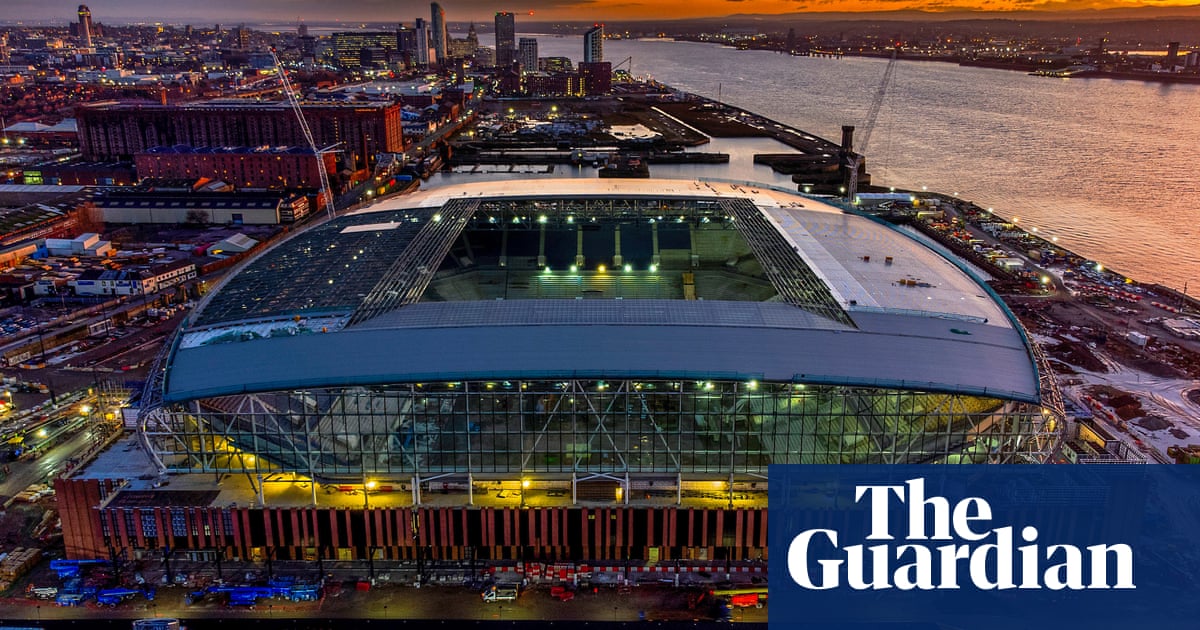At Everton’s annual general meeting in January 2019, owner Farhad Moshiri made a dramatic promise.
Speaking about the club’s ambition to build a 52,888-seater stadium at Bramley-Moore Dock, The club’s majority shareholders pledged: “I will throw in as much money as is necessary. Private markets will provide £350m, naming rights will give us more and we may have an equity gap of £100m.
He said: “(This club) is determined enough to see the project through. This is no luxury; We have to do that. If we want to have a big club we need a modern stadium and we will get it.
About 15 months ago, in January 2023, Moshiri was still reading the same script. He told Everton Fan Advisory Board: “The club is not for sale, but I am talking to real quality top investors to close the gap on the stadium. I can do it myself; The reason I want to do this is to bring top sporting investors to Everton, the fans want improvement for a few reasons: more talent. We are close to a deal. “
However, those who study the club’s operations at the time have now identified clues that led to Everton’s slow decline. Calling a leading firm of restructuring and insolvency consultants To help with their huge debts.
One of the early red flags resulted from the club’s announcement a year after Moshiri vowed to “throw as much money as necessary” into the stadium project. In January 2020, Everton made a remarkable recruitment, seemingly recruiting performance US investment bank JP Morgan and Japan’s largest bank MUFGTo help raise the £500m needed to build the ground.
The pair are such stellar names in the world of finance that the partnership is one of the major signings of the season. But the relationship proved an albatross for the club, as the combined efforts of those two huge financial institutions failed to secure support for the project after nearly four years of trying.
Experts told the Guardian that this is a common method of financing new stadiums Secure all necessary funds Before pushing a shovel into the ground – even though the clubs are common Refinance plans at a later date.
Without that investment facility – and with previous well-known lenders including Santander and the Industrial and Commercial Bank of China no longer providing loans to the club – Everton had to borrow from various sources to fund working capital requirements.
In September 2019 Everton opened an £80m “credit facility” with a company called Rights and Media Funding (RMF), a Cheshire-based firm with zero employees. Borrows its money from opaque offshore companies In order to lend to football clubs. Credit to RMF soon grew.
RMF is now Everton’s biggest creditor – owed around £225m at interest rates reaching 10.25%. That means hundreds of thousands of pounds flow out of the club every week.
RMF secured its debt by owning property rights around Goodison Park. It has clauses in its contract that allowed it to veto a proposed takeover by US sports investment group MSP Capital last year. Neither RMF nor MSP have previously commented on the matter to the Guardian.
MSP itself – along with its partners Evertonian businessmen Andy Bell and George Downing – is another big creditor. That union has Loaned the club around £160mIt is secured on the development of a new stadium, Plus a fee According to corporate documents filed in the Isle of Man, Moshiri’s 94% stake in the club is more than half.
Finances are so tight at Goodison Park that MSP could have taken control of Moshiri’s shares – and therefore the club – last month, because prospective buyer 777 Partners failed to repay MSP on time as part of its takeover.
In the seven months it has been trying to complete its Everton takeover, 777 has loaned Everton around £200m to keep itself afloat.
With the size of Everton’s debt burden compared with its assets – the continued need for working capital injections is now thought to concern club directors.
When companies run into financial difficulties, directors are needed Take professional advice and closely monitor business finances To ensure that they are not trading while insolvent.
